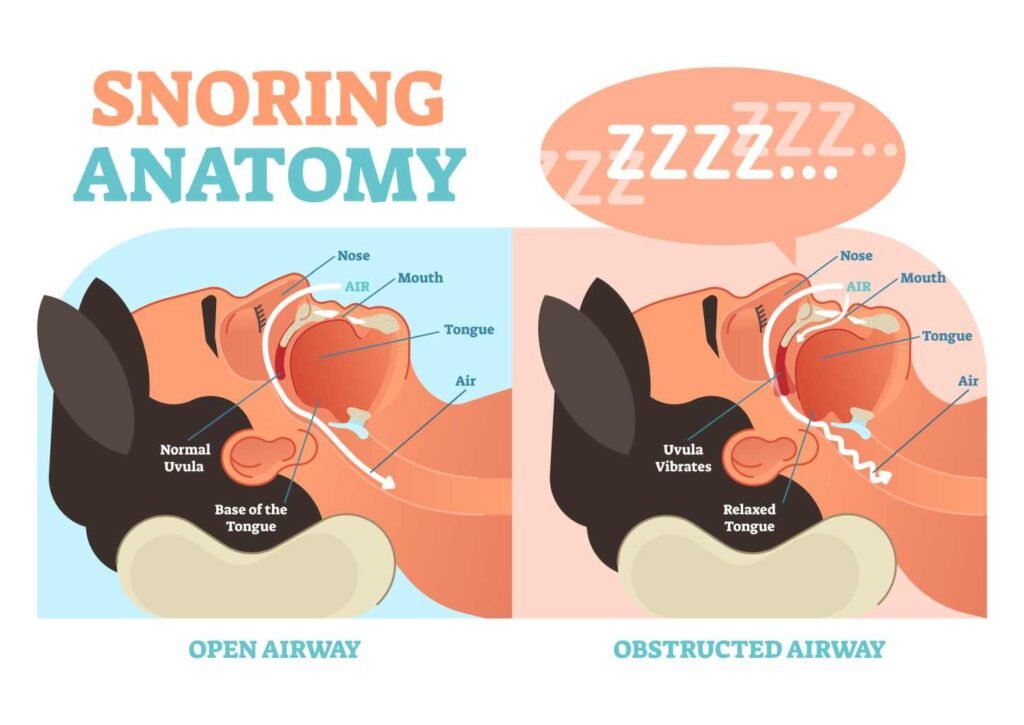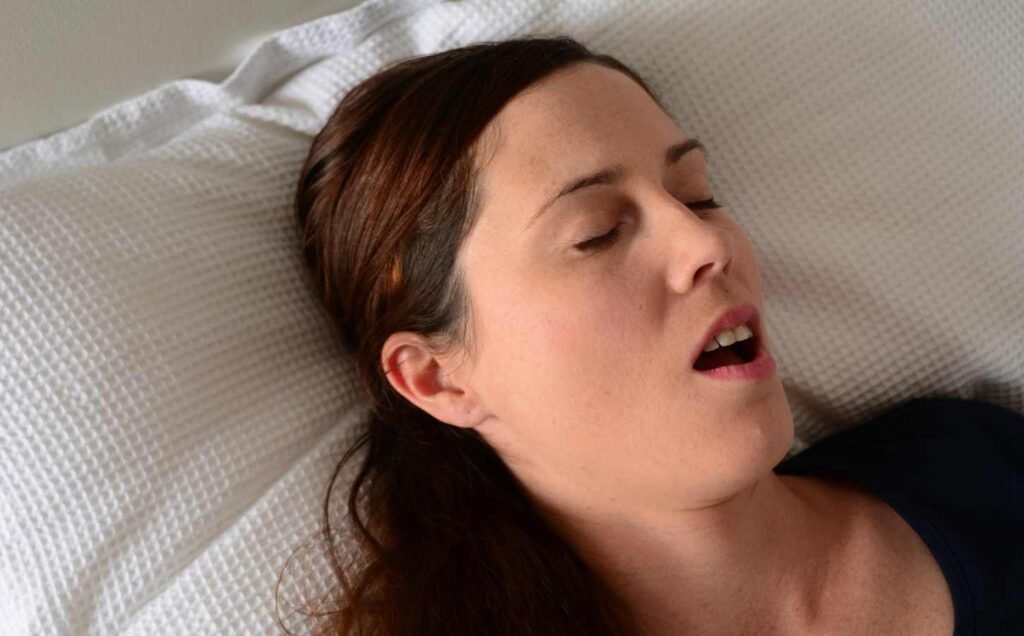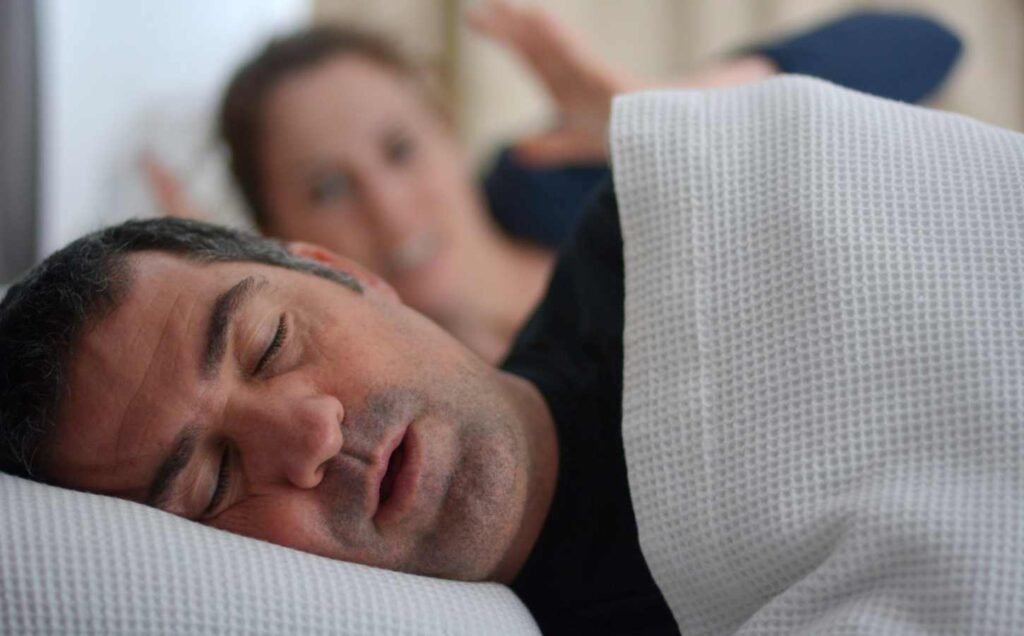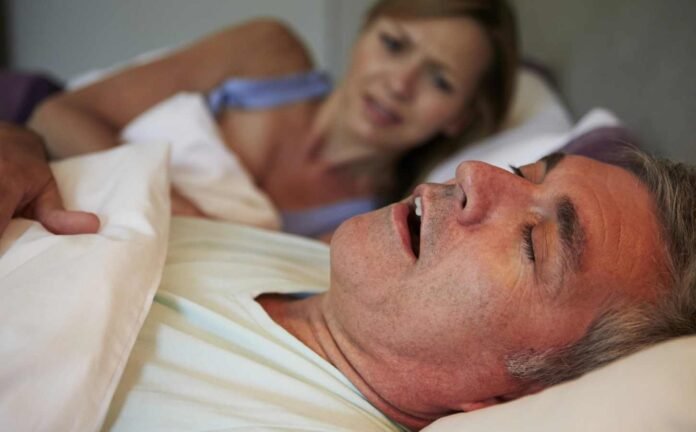Primary snoring is a sleep disorder that is characterized by loud breathing sounds during sleep without any episodes of apnea or cessation of breathing.
While snoring is often seen as a minor inconvenience, it can actually be a sign of a more serious underlying condition. Primary snoring is more common in men than women and tends to increase with age.
Although primary snoring is not typically associated with any health risks, it can still have a significant impact on quality of life. Loud snoring can disrupt sleep for both the snorer and their partner, leading to daytime sleepiness, fatigue, and irritability.
In some cases, snoring may also be a symptom of a more serious condition such as obstructive sleep apnea, which can lead to complications such as high blood pressure and heart disease if left untreated. Therefore, it is important to seek medical attention if snoring is affecting your quality of life or if it is accompanied by other symptoms such as gasping or choking during sleep.

Understanding Primary Snoring
Definition and Prevalence
Primary snoring is a condition characterized by loud, rhythmic breathing sounds during sleep, without any episodes of apnea or hypopnea. It is estimated that about 45% of adults snore occasionally, while 25% snore habitually. The prevalence of primary snoring is higher in males, overweight individuals, and those with a family history of snoring.
Pathophysiology of Snoring
Snoring is caused by the vibration of soft tissues in the upper airway, including the uvula, soft palate, and tongue. During sleep, the muscles in the upper airway relax, causing the airway to narrow. As a result, the airflow becomes turbulent, leading to the vibration of the soft tissues and the production of snoring sounds.
Differences Between Primary Snoring and Obstructive Sleep Apnea
Primary snoring differs from obstructive sleep apnea (OSA) in that it does not involve any episodes of apnea or hypopnea. OSA is a more severe condition that is characterized by repeated episodes of complete or partial obstruction of the upper airway during sleep, leading to intermittent hypoxia and arousals from sleep.
Airflow-Induced Flutter
Airflow-induced flutter is a phenomenon that occurs when the airflow through the upper airway becomes turbulent, leading to the vibration of the soft tissues and the production of snoring sounds. The frequency of the snoring sound is determined by the properties of the upper airway, including its length, diameter, and compliance.
Soft Tissues
The soft tissues in the upper airway, including the uvula, soft palate, and tongue, play a crucial role in the pathophysiology of snoring. These tissues can become enlarged due to various factors, including obesity, alcohol consumption, and smoking, leading to an increased risk of snoring.
In summary, primary snoring is a common condition that is caused by the vibration of soft tissues in the upper airway during sleep. It differs from obstructive sleep apnea in that it does not involve any episodes of apnea or hypopnea. The prevalence of snoring is higher in males, overweight individuals, and those with a family history of snoring.
Risk Factors and Diagnosis
Common Risk Factors for Snoring
Primary snoring can affect individuals of any age and gender. However, certain factors can increase the risk of snoring. Obesity and being overweight are the most common risk factors for snoring. Excessive weight around the neck can put pressure on the airway, leading to snoring. Alcohol consumption can also relax the muscles in the throat, causing snoring. Nasal congestion, deviated septum, and large tonsils can also contribute to snoring.
Evaluating Snoring Severity
Evaluating the severity of snoring is important in determining the appropriate treatment. The Epworth Sleepiness Scale is a simple questionnaire that assesses daytime sleepiness. A score of 10 or higher indicates excessive daytime sleepiness, which may be a sign of sleep apnea. Polysomnography, also known as a sleep study, is a diagnostic test that monitors brain waves, heart rate, breathing, and oxygen levels during sleep. This test can help diagnose sleep apnea and other sleep disorders.
Diagnostic Procedures
A thorough medical history and physical examination are essential in diagnosing snoring. The doctor will ask about the patient’s sleep habits, medical history, and any medications they are taking. A physical examination will include an assessment of the patient’s airway, neck circumference, and tonsils. In some cases, imaging tests such as X-rays or CT scans may be necessary to evaluate the airway.
In conclusion, primary snoring can be caused by a variety of factors, including obesity, alcohol consumption, and nasal congestion. Evaluating the severity of snoring and diagnosing any underlying sleep disorders is crucial in determining the appropriate treatment.
Treatment and Management
Lifestyle Changes and Home Remedies
Primary snoring can be treated and managed through lifestyle changes and home remedies. Losing weight, avoiding alcohol, and treating nasal congestion are some of the ways to improve snoring. Losing weight can reduce the amount of tissue in the throat that vibrates during sleep. Avoiding alcohol can relax the muscles in the throat, making it more likely to snore. Treating nasal congestion can help to reduce the airflow resistance and improve breathing.
Medical Interventions
Medical interventions are also available to treat primary snoring. Oral appliances and continuous positive airway pressure (CPAP) machines are two common medical interventions. Oral appliances are devices that are worn in the mouth during sleep to reposition the jaw and tongue to improve breathing. CPAP machines are devices that deliver continuous air pressure to keep the airway open during sleep.
Surgical Options
Surgical options are available for those who have severe primary snoring. Mandibular advancement devices and the tennis ball technique are two surgical options. Mandibular advancement devices are devices that are surgically implanted in the jaw to reposition the jaw and tongue to improve breathing. The tennis ball technique involves sewing a tennis ball onto the back of a shirt to prevent the person from sleeping on their back, which can worsen snoring.
Overall, treatment and management of primary snoring can vary depending on the severity and underlying causes of the condition. It is important to consult with a healthcare professional to determine the best treatment plan for each individual case.
Impact on Health and Relationships
Effects on Physical Health
Primary snoring can have a significant impact on physical health. It can cause daytime sleepiness, morning headaches, and fatigue, making it difficult for individuals to perform their daily activities. Additionally, loud snoring can disrupt sleep patterns, leading to poor quality sleep, which can increase the risk of health conditions such as high blood pressure, stroke, and diabetes.
Gasping or choking during sleep can also be a sign of sleep apnea, a potentially serious sleep disorder that causes breathing to repeatedly stop and start. If left untreated, sleep apnea can increase the risk of health conditions such as heart disease, stroke, and diabetes.
Social and Emotional Consequences
Primary snoring can also have social and emotional consequences. It can disrupt the sleep of bed partners, causing them to feel tired and irritable during the day. This can strain relationships and lead to feelings of resentment and frustration.
In addition, the loud and disruptive nature of snoring can cause embarrassment and self-consciousness, which can lead to social isolation and a decrease in self-esteem. This can also impact relationships, as individuals may feel self-conscious about their snoring and avoid sleeping in the same room as their partner.
Overall, primary snoring can have a significant impact on both physical health and relationships. It is important to address the issue and seek treatment if necessary to improve quality of life for both the individual and their bed partner.
Upper Airway Resistance Syndrome: Causes, Symptoms, and Treatment

Upper airway resistance syndrome is a sleep disorder characterized by partial airflow disruption during sleep, which leads to frequent arousals and fragmented sleep. It is a lesser-known sleep disorder that is often misdiagnosed or overlooked, but can significantly impact a person’s quality of life.
Continue reading: Upper Airway Resistance Syndrome
Sleep-Related Breathing Disorders: Causes, Symptoms, and Treatment Options

Sleep-related breathing disorders refer to a group of medical conditions that affect the way a person breathes during sleep. These disorders can range from mild snoring to severe breathing disruptions that can lead to serious health problems.
Continue reading: Sleep-Related Breathing Disorders




